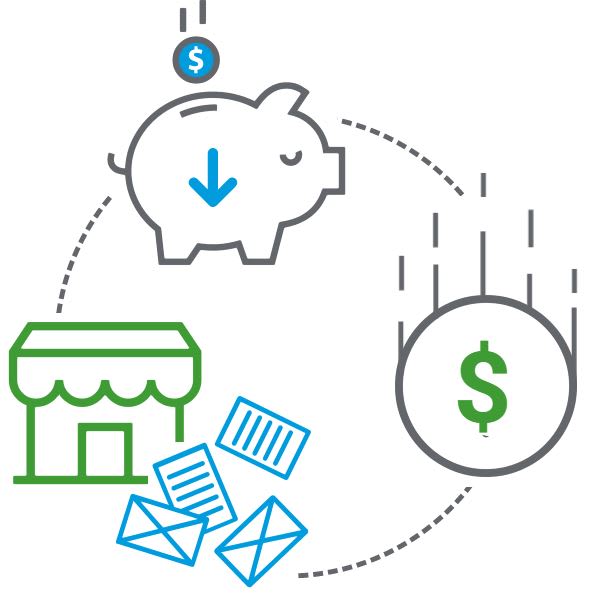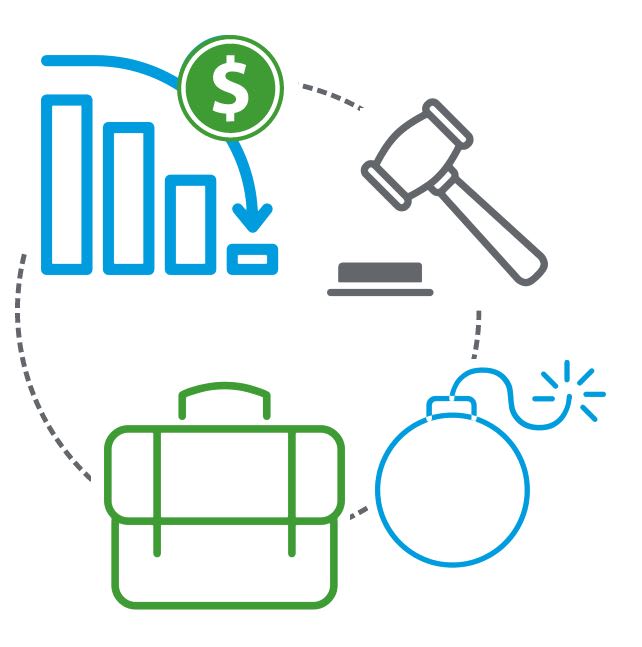This month Andrew Bowcher, an RSM Partner based in Wagga Wagga, shares his personal experience of working with people who are facing potential bankruptcy. After nearly 20 years with RSM, he has worked with a lot of clients and heard a lot of personal stories.

Uncertainty is fatiguing
There is still a great deal of uncertainty out there amongst business owners.
People are wondering; Will there be another COVID-19 cluster outbreak? Will the borders remain open? Is there more Government support to come? Should I try to hang in there and see what happens?
It definitely takes its toll on people’s mental health. It’s an emotional rollercoaster. Relationships are under pressure, particularly in small, family-owned businesses.
I’m on the sideline of my kid’s sporting match and I can hear the fatigue people are suffering from.
People generally like structure and business owners have been living with lots of uncertainty. Too much at times.
I have had clients that have come to me and said, ‘I was going to self-harm - I thought I had no options,” Andrew Bowcher said.
Options you can live with
“I want people to know that there are always options. They may not always be desirable - but they are options you can live with. Refinancing, selling assets, starting again.
Sometimes it may be that one person in the business is ready to act - they say ‘enough is enough.’ The other key person in the business may be less inclined to make the step to admit they have a debt problem.
In my experience, the earlier you seek help, the better - chances are you will have more options available.” Andrew said.
Bad things happen to good people
“Nearly every client I work with is a good person, but have found themselves in a bad situation - sometimes through little or no fault of their own. It may be that a supplier hasn’t paid them. Or that an external event has had a major impact on their business."

"No one starts a business with the intention of failing. It is with the best of intentions that people begin - but businesses do have a natural lifecycle - some prosper, others do not and end up closing. It’s not easy to have a business fail, but it’s also not uncommon,” Andrew said.
According to Fundsquire, 20% of Australian businesses fail in their first year and around 60% will close within their first three years.
“When clients come into the office or call us, they often may feel stressed, agitated, or defeated. I try to make all my clients feel comfortable - I tell them upfront: there are no right or wrong answers - we are just here to help discover what options are available to you today,” said Andrew.
Bankruptcy/Liquidation should not be a dirty word.
“There is a stigma around going bankrupt or going into liquidation in Australia and I think we need to break this down. There has been lots of progress made in recent years where people are more open to talking about their mental health challenges or men sharing their health diagnosis - so I am hoping that a similar openness and acceptance will start to be felt by people who experience bankruptcy/liquidation.
In a small community - people may feel they have let the community down if they close their business, or they may feel ashamed about the business failure.
I have worked with clients who have gone through bankruptcy/liquidation and it’s not easy - but life does go on. I have actually found that people pretty quickly feel relieved that their situation is being managed, that things aren’t out of control any more.
A local client who I worked with a number of years ago still delivers me a case of beer every Christmas - and I still tell him to donate the cost of the case to charity rather than me! He said he was at such a low point when he first came to me that he couldn’t see a way out and wanted to end his life.
I just want people to know - there are always options.” Andrew said.
It’s OK to not be OK
 Albury Business Connect, in conjunction with the Personnel Group, conducted a survey in October last year that looked at the mental health of business operators along the border in response to border closures. Alarmingly, as reported by ABC News, the survey found that “47 per cent of respondents said they felt out of control of their own mental health as a result of border closures.”
Albury Business Connect, in conjunction with the Personnel Group, conducted a survey in October last year that looked at the mental health of business operators along the border in response to border closures. Alarmingly, as reported by ABC News, the survey found that “47 per cent of respondents said they felt out of control of their own mental health as a result of border closures.”
Heads Up, has created a list of some of the common signs and symptoms that can indicate you may be struggling with your mental health, including:
- finding it difficult to concentrate on tasks
- feeling tired and fatigued
- being unusually tearful or emotional
- getting angry easily or frustrated with tasks or people
- drinking alcohol to cope
- finding it hard to make decisions
- avoiding social situations.
If you need to speak to someone about how you are feeling, we recommend you speak to your GP for a referral, or call Beyond Blue on 1300 22 4636 or Lifeline on 13 11 14.
No judgement, just professional financial advice
“When clients come to us it can often be a really low-point for them, but that’s why I love my job - because I know I can help them see their options and play a role in helping them navigate their way out. They make the decisions - I just give them their options,” Andrew said.




